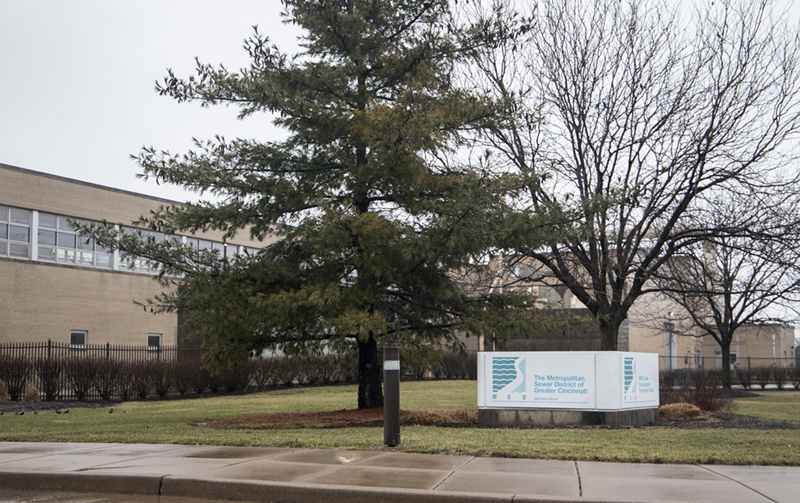Calls for lower sewer rates from the Metropolitan Sewer District (MSD) have been going on for years. But community activists say that a new assistance program that MSD is offering is not enough to help low-income users.
The Hamilton County Commissioners met with community members at the Board of Elections Tuesday to reveal their customer assistance program (CAP) for sewer rates: a 20 percent discount for property owners 65 or older who have an income lower than $32,800.
Members of South Cumminsville-based Communities United For Action (CUFA) were not impressed. The group says that the discount rate should be the 40 percent suggested in a January 2018 Hamilton County Planning and Development draft of CAP recommendations.
“The 40 percent discount is based on Ohio utilities with similar fees and discount rate CAP programs,” the report states.
Supporters of the higher percentage say the Cleveland Division of Water offers a 40 percent CAP discount on all standard water charges and the Northeast Ohio Regional Sewer District offers a 40 CAP discount on wastewater and sewer charges.
CUFA members also questioned why renters are not included in the CAP and told commissioners that a program for seniors shouldn’t require an annual renewal.
“We cannot restrict renters from getting help with their sewer bill, ignoring that most people at the lower level of poverty are paying rent,” said Roy Davis, CUFA board member and property renter.
There are an estimated 783,906 people in MSD’s service area and about 116,512 — or 14 percent — of that base makes less than $35,000 per year, MSD’s provided report says. Of individuals at that income level, about 19,000 — or 2 percent of the base population — are eligible for the program.
Diana Christy, interim director of MSD, had anticipated these complaints and began by explaining that seniors are the only group eligible for discount under the Ohio Revised Code.
Other county officials have also highlighted that limitation.
“If there’s any possibility of us offering to additional populations, for instance low-income individuals who are not seniors, we need state law to change to allow us to do that,” said County Commission President Denise Driehaus.
As a step toward changing the Ohio Revised Code, the county commissioners voted to adopt a resolution calling for the general public and local officials from the mayor and city council to the area’s Ohio General Assembly delegation to craft and advocate “for legislative changes to the Ohio Revised Code that would allow County Sewer Districts to expand their ability to offer expanded customer assistance programs.”
The current discount rate and exclusion of renters from the program are not mandated by the revised code, however, and Christy said that was because expanding the program further could cost MSD too much.
“This is a narrow program that we’re proposing today,” she said. “Even at full participation, that is something we can afford without impacting the rest of the community.”
Full participation of the 20 percent discount would cost MSD about $1.7 million, while full participation at a 40 percent discount would cost double that at about $3.6 million.
Although many had gripes with the proposed plan, no community members thought MSD should refrain from moving forward.
“Does anybody disagree with us implementing what we’re allowed to do while we continue to work on everything that we want to do?” said County Commissioner Todd Portune, asking for a show of hands.
In a room filled to standing-room only, no hands raised.
County commissioners will have to approve a finalized CAP and the rate reduction will be included in the billing systems of entities such as Greater Cincinnati Water Works. It could take several months before MSD begins outreach to customers eligible for discounted rates, officials say.
“There is a significant amount of work involved with changing rates, testing those rates in the system before we send out bills, so this is estimated to be a three to six-month process,” MSD interim director Christy said.






